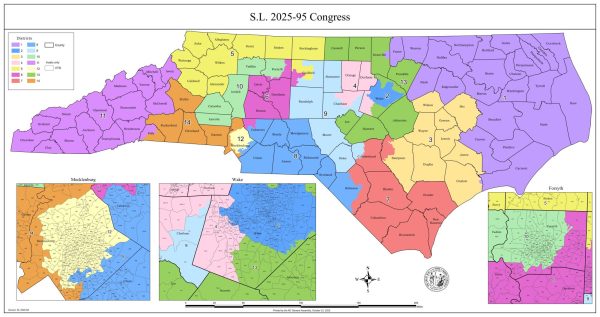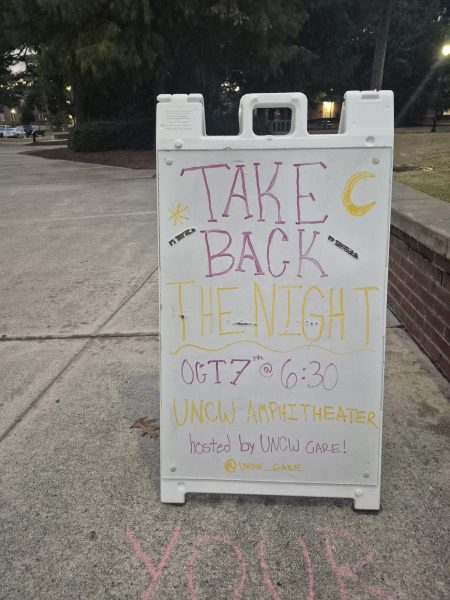Obama’s immigration policy changes opportunities for UNCW students
The Deferred Action for Childhood Arrivals policy, announced June 15,, comes at the perfect time for the many eligible undocumented people in North Carolina-especially students. For Josias*, a senior business student at the University of North Carolina Wilmington graduating this May, this policy allows him to competitively apply for the same internships and jobs as his peers.
As an undocumented student, he has had to pay out-of-state tuition despite having lived in North Carolina for more than five years. He doesn’t qualify for any type of federal or state financial aid. To attend UNCW, he relies on scholarships and paychecks from working construction during school breaks.
He’s one of few, Josias says of his undocumented peers.
“I feel like most of them just gave up on school. I would have to say that is the biggest thing. Half of them drop and out and get a job. And the others just finish out and get a job.” Josias said.
There were 71 undergraduate and 15 grad students at UNCW who were considered “nonresident aliens” in 2011, according to this report. In 2010 there was a total of 104 nonresident aliens, and in 2009, only 72. Numbers for this fall were not available, according to the Office of Admissions.
“They have only approved 4,000 cases nationwide,” said Attorney Jeffrey Widdison, one of only 20 North Carolina board-certified immigration law specialists. “There is a six-seven month wait for applicants after their application is sent.”
Still, Josias is applying.
There are 50,000 undocumented people who meet the new qualifications in North Carolina, according to research released in August 2012 by the Migration Policy Institute, a non-profit organization based in Washington, DC. These people can now apply for jobs, social security numbers, and professional and driver’s licenses-legally.
The policy, approved by President Obama, also grants work permits for a period of two years for individuals who meet specific qualifications, including age of entry, criminal record, education status and a five year residence in the U.S. The deferred action status can be renewed at the end of the two-year period.
However, this is only a temporary fix to a long-term issue.
Edelmira Segovia, the Director of Centro Hispano at UNCW, has witnessed the increase of Hispanic resident applicants to the university. However, the number of nonresident students applying has always remained low-mainly because any non-resident student applying to a North Carolina two- or four-year institution would have to pay out-of-state tuition.
“I expect [nonresident] students will regain a sense of hope for a positive future,” said Segovia. “Many very talented students, who stopped their education once they graduated from high school, will at least consider furthering their education.”
The most recent numbers indicate that only 180,000 applicants out of the 1.76 million eligible undocumented immigrants applied when the policy opened for applications on August 15. These numbers indicate that even though the program has been open for two months only 10.2% of the possible eligible applicants have applied.
The overall sentiment on the DACA policy is one of hope for the future. However there are still many who have reservations on the effectiveness of the policy.
“It feels like a trick,” said Secondino*, the father of two children eligible for deferred action. “A government trick. There is a certain way the government can get a certain amount of money out of illegal people.” He has lived in the U.S. for over 22 years, working agricultural and maintenance jobs. Although he views this policy as a positive step for his children, it is still not enough.
Marcio Moreno, assistant director for admissions at UNCW, believes that the new policy will not affect admissions.
“We all want to believe that we will receive more applications and will admit more students,” he said. “However, we have to remember that these students will still have to pay out-of-student tuition. In this sense, the situation has not changed much.”
The policy is open to interpretation in various locations, especially in what qualifies as a “significant misdemeanor,” which would disqualify an applicant from receiving benefits. There is no appeals process to the policy.
If an applicant is denied once, there is no second chance.
At an information session hosted by Centro Hispano for the Wilmington community, Helen Jugovic, another local certified immigration law specialist pointed out the policy’s subjectivity.
“These laws are not black and white,” she said. “They are discretionary choices by officials.”
Although the new policy is a step forward, immigration policy has a long way to go before nonresident students have the same opportunities that resident students do.
“I feel kind of excited because it is a little bit of help,” Secondino said. “The students will not have the same feeling they had before. Still. Still. There is going to be a lot of work that has to be done.”
*Some names have been changed to protect privacy.







